Do You Share Your Workspace?
It’s an interesting question most loners shrug off because they like their own space and being alone. Whether that’s completely true they may not actually know, they may just think that’s what they like. Living successfully in both camps there are some things everyone should consider.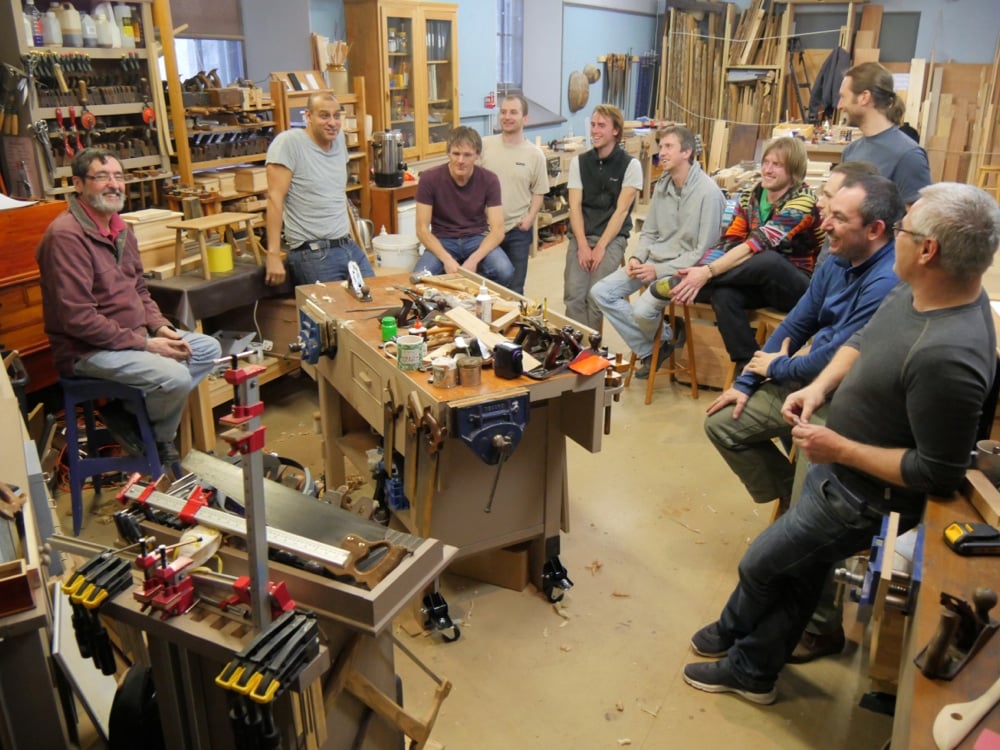
Over the decades I have had long expanses of sharing my workspace with others and having others share my space. What the considerations are only become evident when you actually do it. I can enjoy having another or others in the shop and then when they are not there I can enjoy that too. You have to have some parameters in place to create harmony around where and how you work. Peace is always of paramount importance and that means different things for different people but without peace and even quiet and loneness at appropriate times productive time is often lost and that’s when it can become very costly in finance, productivity and peace too. It’s often easier to be alone and that’s one of the things creative people often consciously decide. Is it selfish? 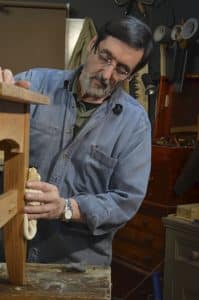
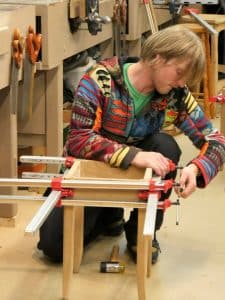
Sharing my Workspace

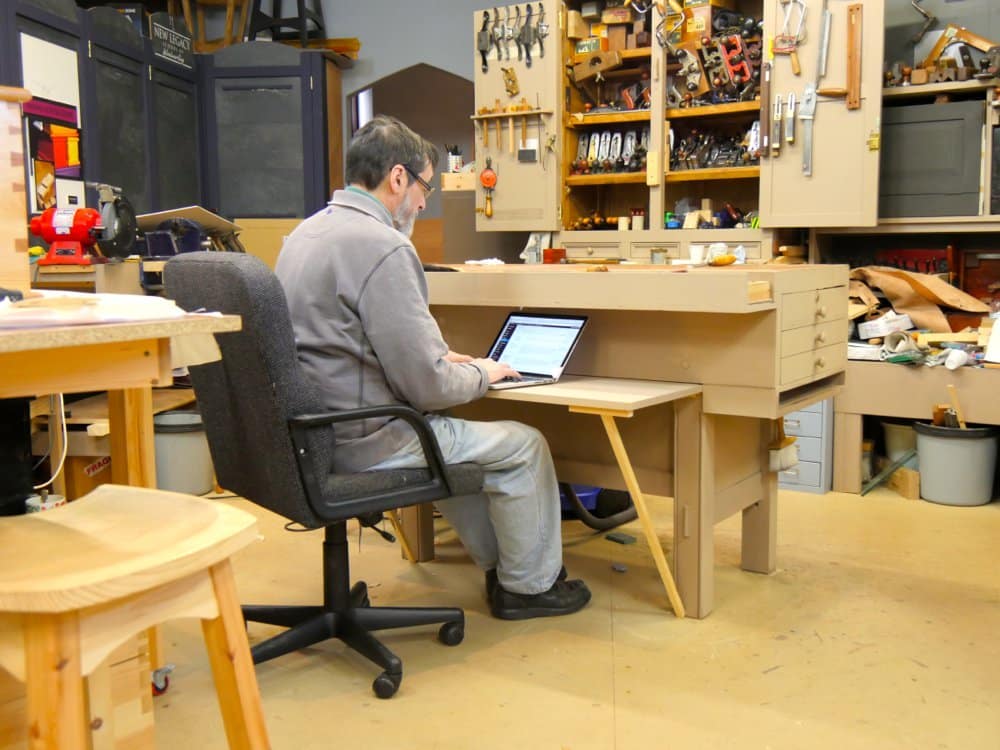
In a little over a week or so Leah B will be back with us from Slovakia to spend a month of working wood with us for a month. She has the mahogany table to finish and then some other pieces too. She will be making some planes and tools and then a furniture piece too. this is my investment of my workspace in her. It will build her up. 
Another woodworker coming in to share space is Sam who was on a previous course too. He too will be making and learning and changing direction to become a woodworker looking for a serious future.
I got many emails from joiners and carpenters last week after my blog about becoming skilled rather than a mere machinist. Most of them wanted real woodworking and went to college, learned some hand skills and such, trained up on machines and got their NVQs for machining and then started pumping wood incessantly into machines month after month. They were indeed dispirited but their new and soulless bosses didn’t want real woodworkers they just wanted to push them as buttons in their mass making mechanisms.
Of course the classes we give, some paid for and some not, becomes an inclusive sphere for a dozen people to share their experience and experiences too. Classes have been and are still a big part of my lifestyle.
I’ve been experimenting with alternative sharpening methods too, recently. Not new, a bit different and the results are remarkable and the whole system of sharpenings will cost a few pennies to get you back to work or fully functioning with a good cutting edge even when you never sharpened a thing before in your life.
Back to sharing space
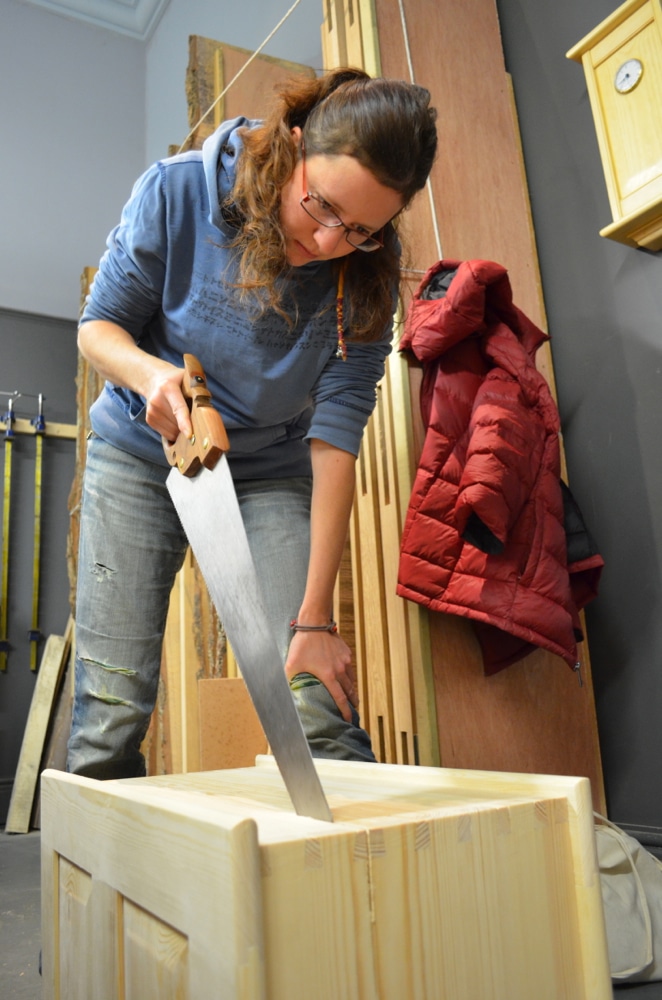
With a workshop it’s important not to have anyone vote on your creative workspace, what you can and can’t make and how you make it, but some ground rules should be established right off the bat. For instance my shop is a hand tool shop but I have a bandsaw there for occasional dimensioning. For me a rule is necessary beforehand saying no mass-making machinery but an occasional use one can be considered. A bandsaw or something like that works well. Routers too would be restricted to periodic use once every so often by agreement, perhaps. You know, for some difficult moulding or something, but never for routing out say hinge recesses and such mind-numbing stuff. You see shared space always needs someone who takes the ultimate responsibility; usually the lessor or owner. This then gives a basis for sharing without allowing anyone adding liberties or worse still taking over your life and your working environment. Pre existing terms can be set to eliminate confusion and disputes down the road but expect the unexpected.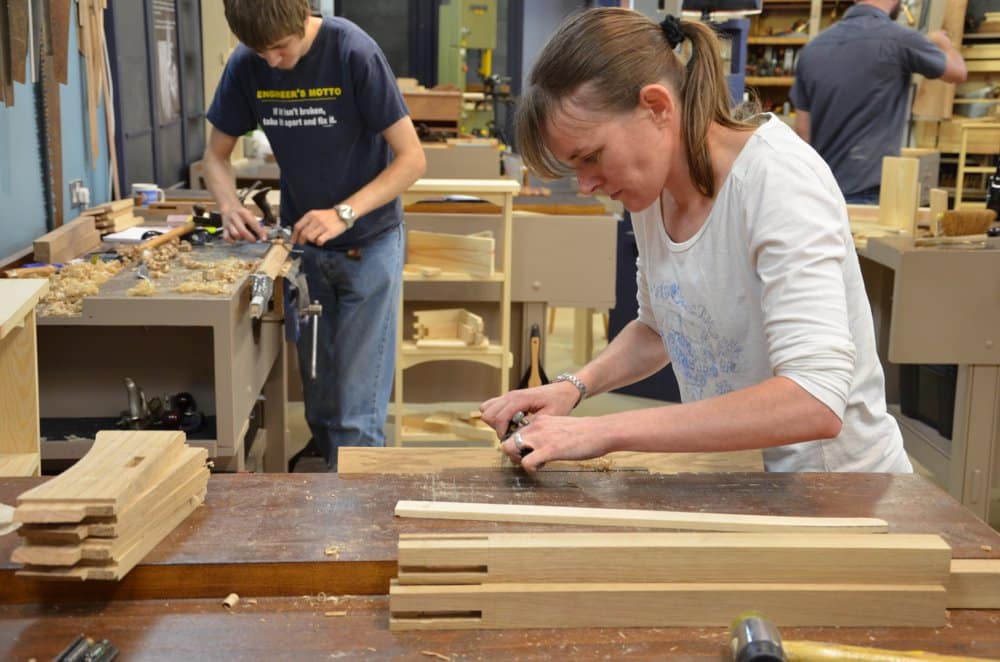
Sharing workspace needs always to be as positive an experience as possible and smiles across a workshop floor from one creative space to another or a nod of approval and a helping hand in both directions should always be the ultimate goal. It’s not always on a space-for-rent basis. I don’t charge rent to people who come in generally. If and when that happens people often feel they re buying rights to do whatever they want. They can end up destroying all peace and any sense of wellbeing for others. 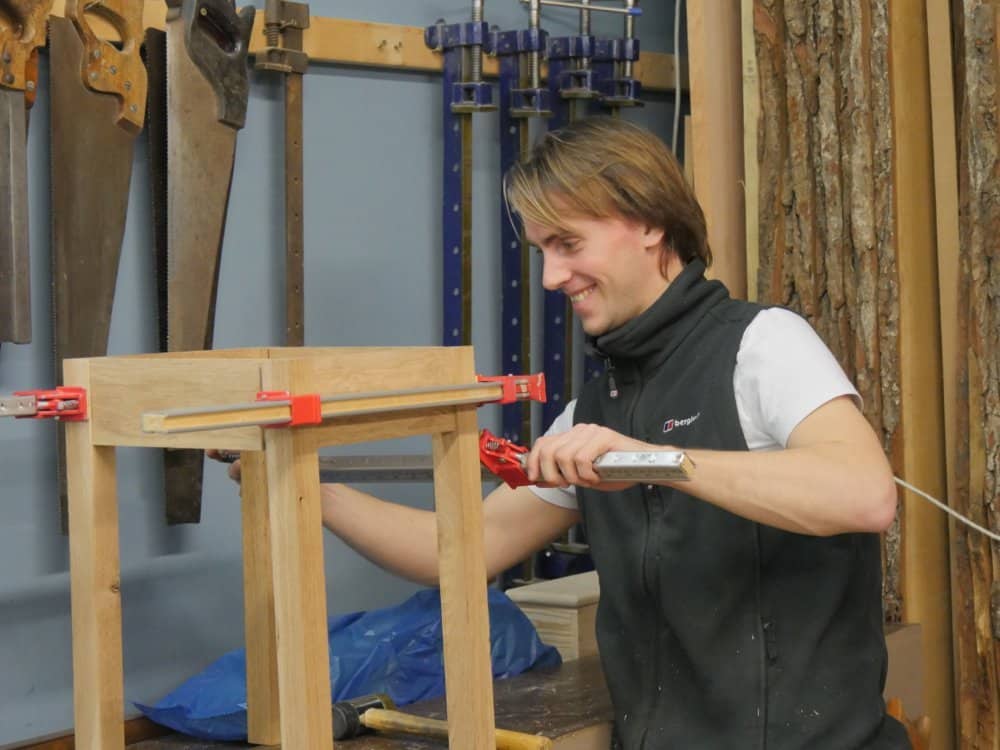
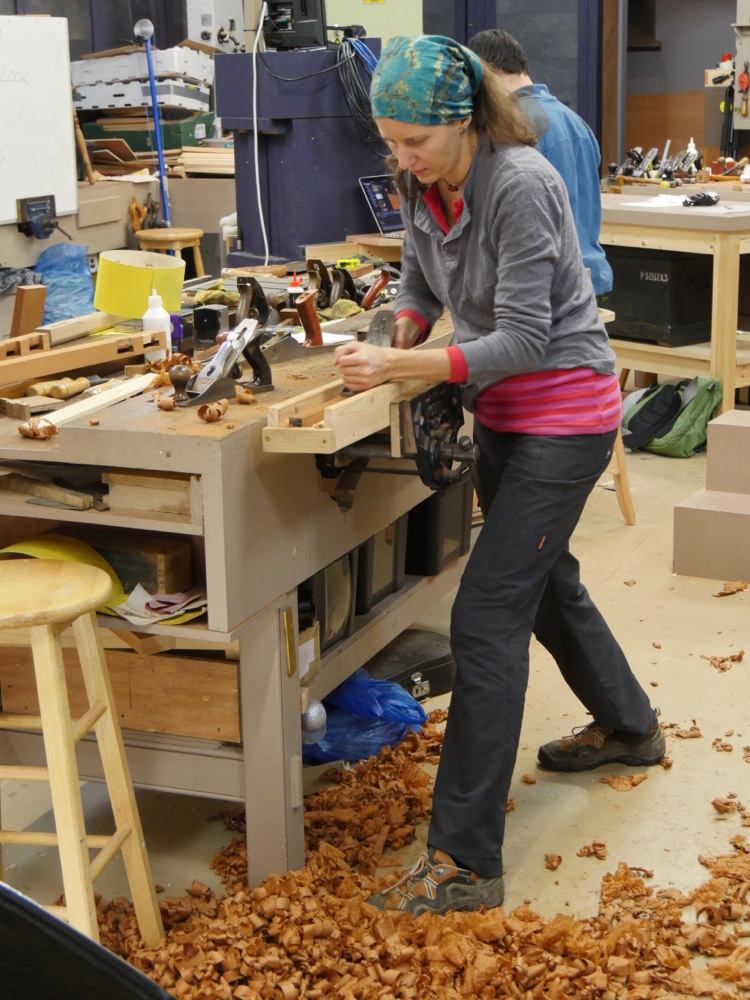
I think that sometimes people might want to factor in some sole shop time. Nothing wrong with setting days for communal work and having a number of days in a week or hours in a day when you have quiet time. You can start at 8 and be unencumbered until say 10, welcome others at 10 and leave or be left alone later. It’s mostly about mutual respect and not just being a control freak. I think I have now trained a couple of dozen woodworkers to an advanced furniture making level who became furniture makers in their own right and their own space too. They moved on and some of them now share their workspace with others and train others too. So lifestyle is a way to share and to pass it on!


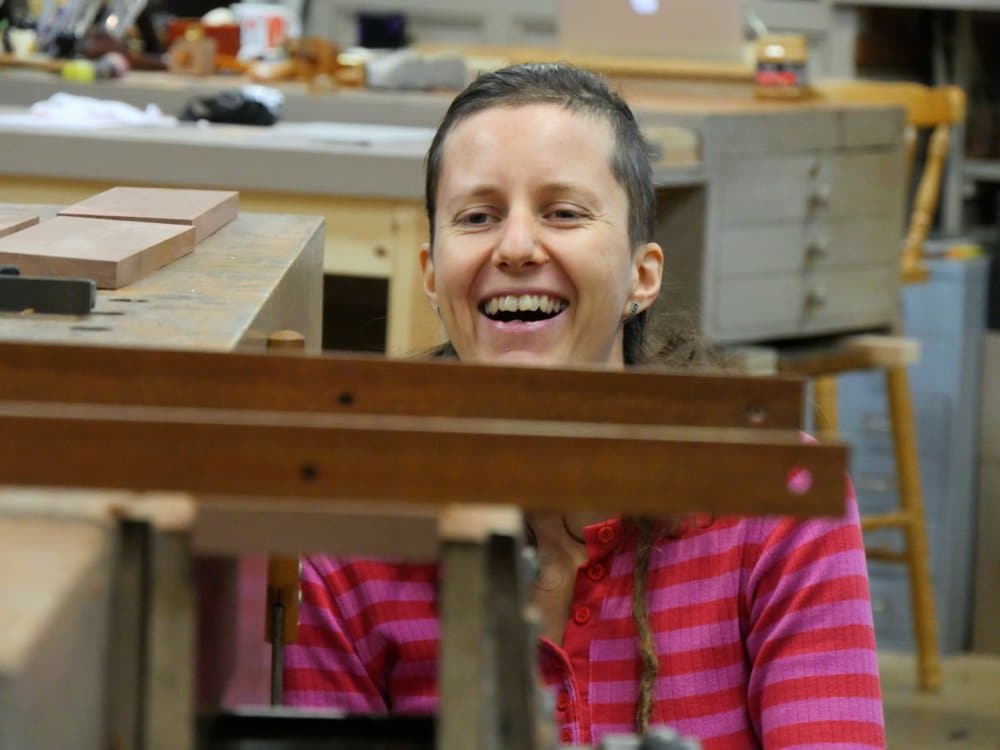
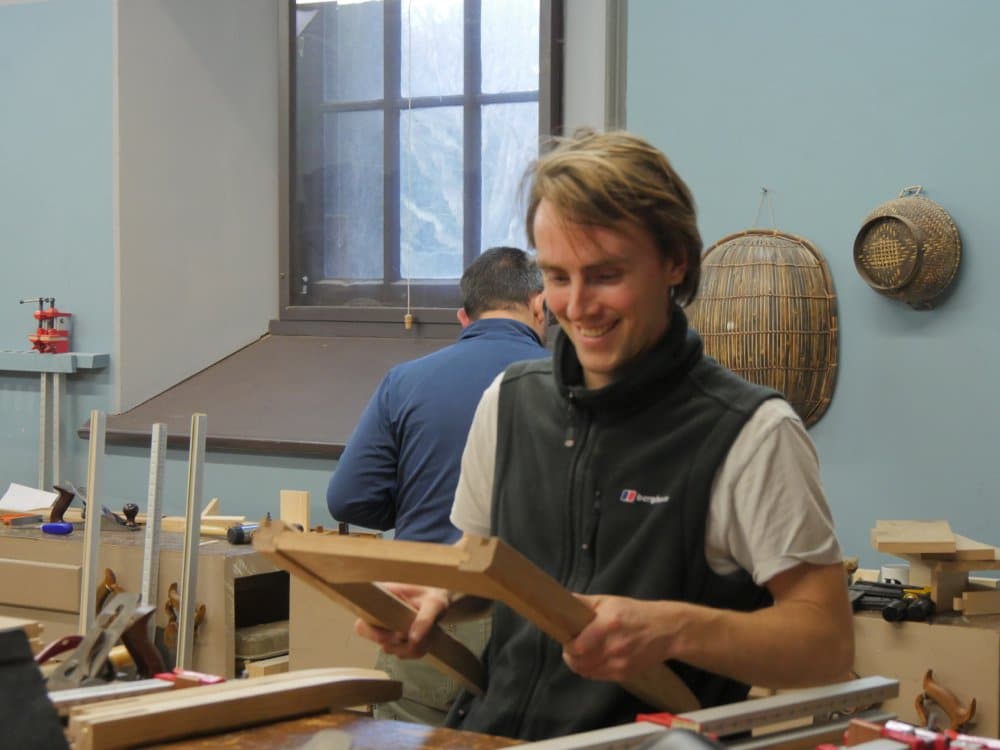


Very nice piece, Paul. My favorite time in high school more than 20 years ago was the drafting classes I took in all four years. I’m very much a loner, but it was some of the best times of my school life “sharing space” with six or so other kids, with our own tables and drafting tools and work, but with the camaraderie of doing work with others under the watchful (and sometimes quite sleep-ful) eye of the elderly Mr. Cartwright. There’s something to be said for that kind of workspace. There’s a certain rhythm to it.
Love this. Again you put in clear words what my gut has been telling me about how to create the culture and ground rules of shared workspace in my context. Thank you!
My curiosity about your sharpening tests is “killing me”. Even a gentle hint would suffice to sooth that savage beast of wondering. I suspect there are many of us who have “tried almost everything” but who have found a refuge in your experience-based common sense approaches. So, “tease” no longer kind sir
Just had my first two months of sharing my workshop with a student, and I recognize many of the issues you raise. Wish I had read something like your wonderful blog post on this subject earlier, but then, one learns a lot from mistakes and just trying.Thanks a lot for sharing this very interesting post!
Sorry I was late. The originator of the creative workspace should always remain in control and yet be able to offer others a place if possible. To do that means openness and honesty right from the get go. You should be able to consider if someone invades your creative space and disrespects the mood of the place that you develop then they should know that they will need to take a back seat from time to time and not get offended.
I’m in a shared space with other woodworkers and metalworkers, but I’m the only one who works primarily by hand. So it’s annoying to come in sometimes and find my whole area covered in a layer of dust from someone’s angle-grinder sanding. (Needless to say, finishing is a nightmare, best done before home time or on weekends.) But we’ve started putting rules in place – simple stuff like only one radio station playing at a time. The benefit always is in the company; having people to say hello to, or get advice from, or maybe just to borrow a router bit from (and yes, return it!)
Well said Paul.
Thanks once more for sharing your thoughts on the craft.